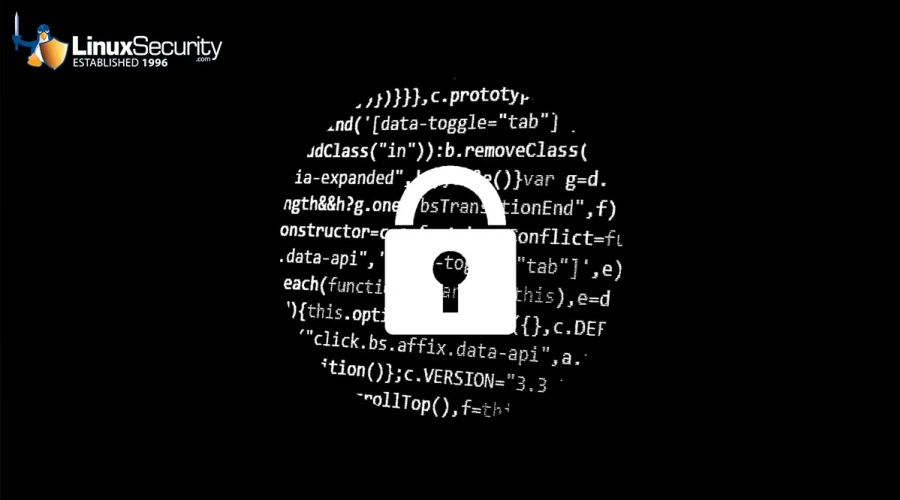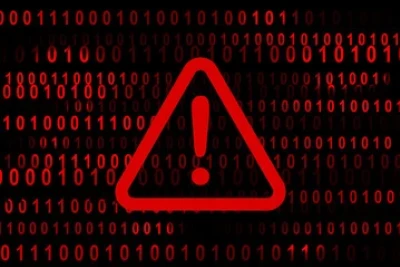
Researchers from Qualys recently revealed critical vulnerabilities that have existed in the Linux utility needrestart utility for a decade. This tool is an indispensable resource for administrators as it monitors whether systems or services need restarting after package updates.
Unfortunately, Qualys researchers identified five vulnerabilities that, if exploited by local attackers without user authorization, allow unprivileged local attackers to gain root access without user interaction or any user intervention whatsoever. In this article, I'll analyze these vulnerabilities, potential impacts, exploitation methods, and mitigation strategies you can employ to secure your Linux systems. Let's begin by understanding the vulnerabilities discovered.
Understanding the needrestart Linux Utility
Needrestart is an essential Linux utility that identifies any running services that need restarting after installing updates to libraries, services, or dependencies currently in use. When updates are applied to these components, simply upgrading is not enough - services using old versions may continue running until rebooted. Needrestart scans the system and alerts sysadmins of such instances so all changes take effect properly and keep systems secure and stable.
Practically speaking, Needrestart provides admins with an invaluable asset for maintaining system integrity and security. Automatically detecting services that need restarting after updates help prevent mismatches resulting from running outdated components and related vulnerabilities. Streamlining updates by automating the restart process makes maintenance efficient with lower risks of human error, reducing downtime and decreasing risks for administrators.
Overview of the Vulnerabilities Discovered
 One bug discovered by Qualys, CVE-2024-48990, allows local attackers to execute arbitrary code as root by manipulating the PYTHONPATH environment variable used by needrestart, which inadequately sanitizes this variable when determining if a Python process needs restarting. CVE-2024-48991 is another race condition vulnerability that allows attackers to exploit needrestart to execute a fake Python interpreter controlled by them, leading to code execution as root. CVE-2024-48992 similarly exploits the RUBYLIB environment variable to run arbitrary code by tricking needrestart into running an attacker-controlled Ruby interpreter. Additionally, CVE-2024-10224 stems from Perl's ScanDeps module and allows attackers to run shell commands as root by manipulating filenames with shell metacharacters. CVE-2024-11003 presents another flaw within Perl's ScanDeps module, which permits file operations with root privileges.
One bug discovered by Qualys, CVE-2024-48990, allows local attackers to execute arbitrary code as root by manipulating the PYTHONPATH environment variable used by needrestart, which inadequately sanitizes this variable when determining if a Python process needs restarting. CVE-2024-48991 is another race condition vulnerability that allows attackers to exploit needrestart to execute a fake Python interpreter controlled by them, leading to code execution as root. CVE-2024-48992 similarly exploits the RUBYLIB environment variable to run arbitrary code by tricking needrestart into running an attacker-controlled Ruby interpreter. Additionally, CVE-2024-10224 stems from Perl's ScanDeps module and allows attackers to run shell commands as root by manipulating filenames with shell metacharacters. CVE-2024-11003 presents another flaw within Perl's ScanDeps module, which permits file operations with root privileges.
Impact Analysis for These Vulnerabilities
These needrestart vulnerabilities threaten Linux systems running Ubuntu Server with significant risks. One major impact is local privilege escalation (LPE), in which unprivileged local users gain root access. Furthermore, these exploits allow attackers to execute arbitrary code with elevated privileges, ultimately leading to complete system compromise or even total takeover by malicious actors. Since needrestart operates with elevated privileges to monitor system services, any flaw in its execution could be exploited by malicious actors to undertake dangerous activities against those systems.
Systems running Ubuntu Server versions from 21.04 onwards are at particular risk due to needrestart being enabled by default and thus installed and configured automatically. This impacts a large portion of server deployments worldwide, hence making prompt vulnerability mitigation an essential priority.
Exploitation Methods
 These recently disclosed vulnerabilities exploit environment variables and improperly sanitized input to achieve arbitrary code execution through multiple means. For CVE-2024-48990 and CVE-2024-48992, attackers set PYTHONPATH or RUBYLIB to directories that contain malicious libraries to gain arbitrary code execution. Needrestart may accidentally load malicious libraries that allow root code execution. Placing one in an area specified by PYTHONPATH could allow its execution without authorization from needrestart. CVE-2024-48991 exploits a race condition where attackers can switch out a valid Python interpreter for one that contains malware just before needrestart runs it, thus leading to code execution and, ultimately, code theft. CVE-2024-10224 and CVE-2024-11003 exploit Perl's ScanDeps module by creating shell metacharacters files. Arbitrary commands may be executed when needrestart scans these files.
These recently disclosed vulnerabilities exploit environment variables and improperly sanitized input to achieve arbitrary code execution through multiple means. For CVE-2024-48990 and CVE-2024-48992, attackers set PYTHONPATH or RUBYLIB to directories that contain malicious libraries to gain arbitrary code execution. Needrestart may accidentally load malicious libraries that allow root code execution. Placing one in an area specified by PYTHONPATH could allow its execution without authorization from needrestart. CVE-2024-48991 exploits a race condition where attackers can switch out a valid Python interpreter for one that contains malware just before needrestart runs it, thus leading to code execution and, ultimately, code theft. CVE-2024-10224 and CVE-2024-11003 exploit Perl's ScanDeps module by creating shell metacharacters files. Arbitrary commands may be executed when needrestart scans these files.
Reasons Behind Not Releasing Exploit Code
Qualys has decided not to publicly release the exploit code for these flaws for several reasons. First, withholding it helps avoid abuse. Publishing exploit details could facilitate immediate exploitation by malicious actors, leading to widespread attacks. Secondarily, by not disclosing exploit details publicly, Qualys encourages responsible patching, allowing administrators and developers to update systems without the immediate pressure of potential attacks looming over them. Furthermore, many systems remain unpatched, or administrators are unaware of vulnerabilities. Hence, withholding the exploit code allows these systems to be updated and protect themselves before anyone can publicly release exploit details.
Practical Advice & Mitigation Strategies for Linux Admins
 Administrators should take several key steps to mitigate these vulnerabilities and limit potential security threats. First, they should ensure they use the latest version of needrestart, including patches addressing these vulnerabilities. Regularly reviewing Ubuntu repository updates and security advisories is crucial. Monitoring package repositories for updates and applying security patches as soon as they become available is vitally important.
Administrators should take several key steps to mitigate these vulnerabilities and limit potential security threats. First, they should ensure they use the latest version of needrestart, including patches addressing these vulnerabilities. Regularly reviewing Ubuntu repository updates and security advisories is crucial. Monitoring package repositories for updates and applying security patches as soon as they become available is vitally important.
Debian and Ubuntu have already responded to these bugs by releasing important security advisory updates.
Administrators should set policies that restrict and validate environment variables used by privileged processes, limiting the influence of potentially risky environments such as PYTHONPATH and RUBYLIB variables. Implementing mandatory access control mechanisms like AppArmor or SELinux can increase system security by restricting permissions for processes like needrestart running with root privileges.
Routine security audits and process monitoring are invaluable ways to detect suspicious activities or potential exploit attempts while limiting attack surfaces by restricting Ruby interpreter installation on servers. This can lessen risks associated with exploit attempts.
Careful implementation of unattended upgrades can prevent unintended privilege escalation. Close monitoring and logging are also recommended to protect system users against manipulating environment variables, race conditions, and other risky behavior. Furthermore, educating users about potential dangers associated with environmental manipulation or risky behaviors is necessary to protect systems against exploitation.
How Can Admins Configure needrestart Securely?
Linux administrators looking to configure needrestart securely should begin by making sure they use the most recent version since updates often contain critical security fixes and improvements. They can install or upgrade needrestart using their package manager (apt-get on Debian systems or yum on Red Hat systems). Admins can manage configuration via the /etc/needrestart/needrestart.conf file. This file enables administrators to set different options, such as which services should automatically restart and notifications about critical services that require manual intervention.
Admins should take several security measures with needrestart, including setting it to operate with minimum privileges by running it under a user account with least privilege access, thus decreasing risk if the utility is compromised. Furthermore, administrators can leverage system logs to monitor needrestart actions and integrate them with centralized solutions for better oversight. They can also ensure secure access through restricted permissions to the configuration files, which only allows trusted users access to make adjustments, combined with automated restarts and thorough logging capabilities.
Our Final Thoughts on Addressing These Easily Exploitable Bugs
The vulnerabilities recently identified in needrestart emphasize the necessity of employing stringent security practices and maintaining systems with care. By understanding their nature, potential exploitation methods, and mitigation techniques, administrators can protect their systems against serious harm. Staying updated, applying patches quickly, and employing security mechanisms are vital in protecting against these flaws and guaranteeing server environments' integrity and safety.
Are you affected by these bugs? Have You patched? Let us know @lnxsec!













